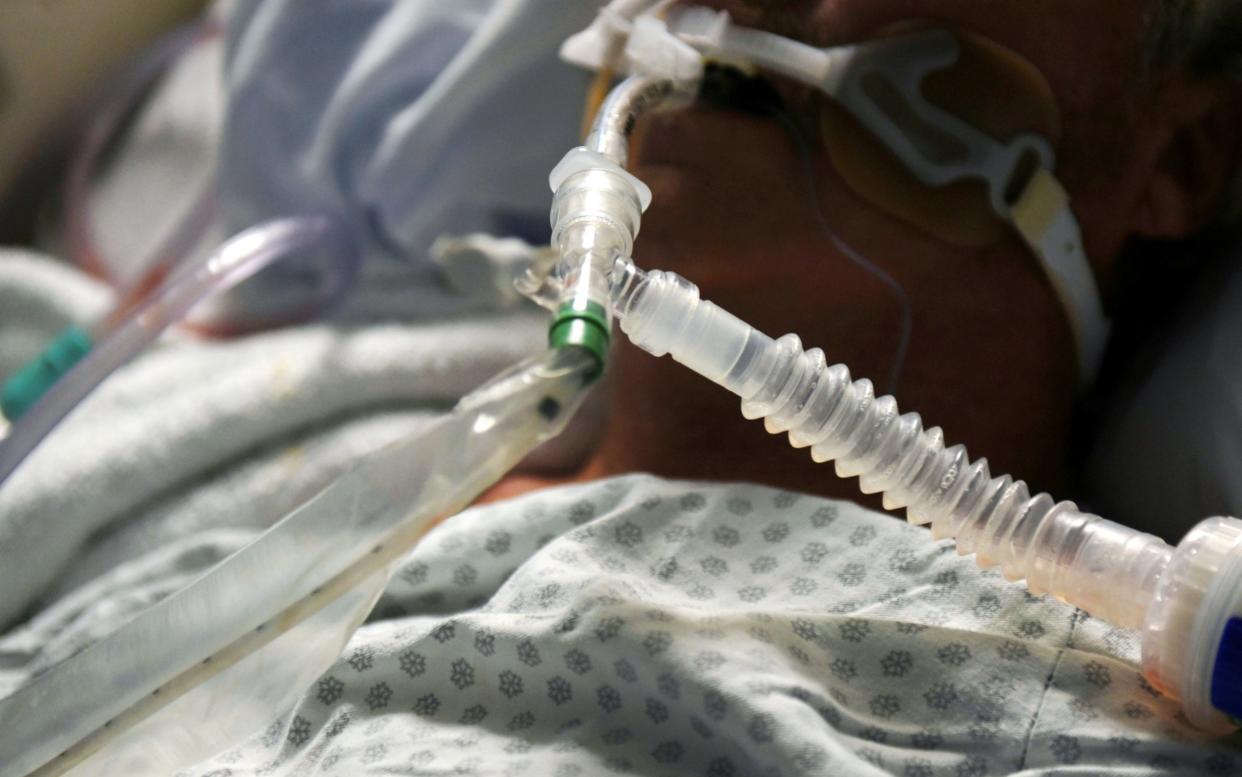Exclusive: Covid patients dying unnecessarily because they refuse to go on ventilators, medics warn

Critically ill Covid patients are dying unnecessarily in the second wave because they are refusing to go on ventilators, senior medics have warned.
The Faculty of Intensive Care Medicine said its members are being confronted by patients or their families who wrongly believe that the machines will kill them.
It follows widespread use of the devices in the early stage of the pandemic, when death rates in intensive care units were high. Ventilator use then declined markedly during the first wave, and this correlated with an improvement in survival.
However, Dr Alison Pittard, the dean of the faculty, said recent studies proved that the two were not related and that patients were and are dying from Covid itself and not because of the machines. She told The Telegraph that, during the second wave, colleagues across the country have watched patients die because of their fear of intubation.
Although there is not yet published data, Dr Pittard said this trend appears to be more pronounced among patients from ethnic minority backgrounds and those from deprived areas.
"It's really difficult for doctors working in ICU when you see a patient deteriorate and you know that if you don't put them on a ventilator they are going to die, but they are refusing," she said.
"They get sicker and sicker and sicker, then you have a situation when they become semi-conscious, so you can't have an informed conversation. We have to honour our patients' wishes."
Before the peak of first wave hospital admissions on April 1, 75.9 per cent of Covid patients were intubated within 24 hours of arriving in ICU, according to the Intensive Care National Audit and Research Centre.
This dropped to 44.1 per cent after the peak. At the same time, the chances of dying in ICU declined from 43 per cent to 34 per cent.
Dr Pittard said this was not due to changes in ventilator use but rather to improvements in understanding how to treat aspects of severe Covid, such as blood clots, as well as the introduction of new drugs such as Dexamethasone.
The main reason ventilator use declined, she said, was because doctors realised that Covid patients were faring unexpectedly well with what would normally be considered dangerously low oxygen saturation levels.
However, below a certain threshold intubation offers the only chance of survival.
"If you get to that point where you are being offered a ventilator, if you refuse there is a 100 per cent chance you are going to die," Dr Pittard said. "But if you say yes it's a 40 to 50 per cent chance. It's the Covid that's killing you."
She pointed to a study which took place across five hospitals in the US involving more than 1,000 Covid patients. Forty-two per cent of those who were ventilated died, but they tended to be older and were found to have more severe underlying indicators of disease than those who survived.
As of Friday evening there were 3,918 patients Covid on ventilation across the UK, out of a total of 35,375 in hospital.
Whereas overall numbers of Covid patients in hospital reached nearly double the peak of the first wave this month, the January peak of ventilator use – 4,077 – was only 23 per cent higher than April peak of 3,301.
Many hospitalised Covid patients still require high volumes of oxygen, but doctors prefer to administer this non-invasively, either though a normal oxygen mask or through continuous positive airway pressure (CPAP) machines, which Boris Johnson was understood to have used during his illness.

